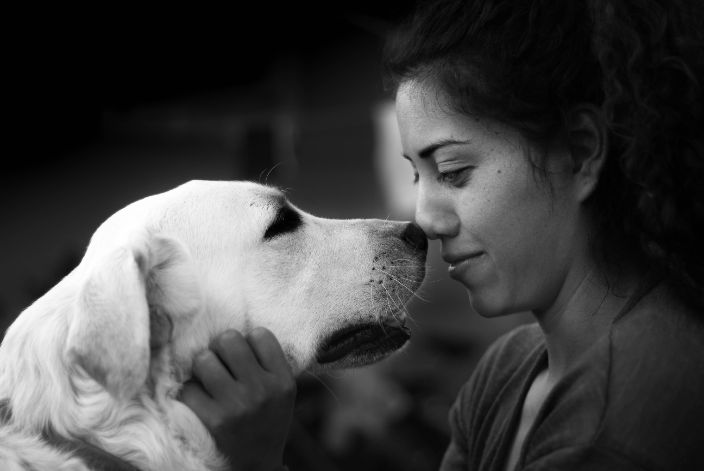Losing a beloved pet can be one of the most emotionally challenging experiences for an individual. Pets are family members, companions, and sources of unconditional love, and when they pass away, the grief can be overwhelming. Pet grief counseling provides the support and understanding that pet owners need during these difficult times. Earning a pet grief counseling certification equips professionals with the specialized skills to guide clients through the grieving process. This certification is designed for those who want to make a meaningful difference while addressing the emotional and psychological needs of individuals coping with pet loss. By becoming certified, counselors gain credibility, develop a deeper understanding of grief dynamics, and enhance their ability to provide empathetic care. It also allows professionals to expand their services and create a niche in the growing field of pet loss support.
Understanding Pet Grief Counseling
Pet grief counseling focuses on helping individuals navigate the complex emotions that arise after losing a pet. Unlike general grief counseling, it addresses the unique bond between humans and their animals. The emotional impact of pet loss can include feelings of guilt, sadness, loneliness, and even depression, which can affect daily functioning. Certified counselors learn techniques to recognize and validate these emotions, ensuring clients feel heard and supported. They are trained to offer practical coping strategies, including memory preservation activities and self-care practices. Understanding pet grief also involves acknowledging cultural differences in how people view animals and their relationships with them. Certified counselors develop the ability to tailor support according to each client’s needs, fostering a safe and compassionate environment for healing.
Why Certification Matters
Obtaining a pet grief counseling certification provides numerous professional advantages. First, it establishes credibility, signaling to clients that the counselor has received specialized training in this sensitive area. Certification reassures clients that the counselor understands the emotional complexities of pet loss and is equipped with effective tools to guide them. It also differentiates counselors from general practitioners, creating opportunities for career growth in a niche field. Certified counselors often report greater confidence when managing difficult emotional situations and delivering consistent, empathetic support. Additionally, certification enhances networking opportunities, connecting professionals with like-minded peers and resources. This recognition also encourages ongoing learning and professional development, keeping counselors up-to-date with the latest techniques in grief support.
Types of Pet Grief Counseling Certifications
Pet grief counseling certification programs vary depending on the training provider, delivery method, and level of accreditation. Some programs are offered entirely online, providing flexibility for busy professionals. Others are in-person workshops or blended courses, which include hands-on practice and role-playing scenarios. Accreditation is an important consideration, as it ensures the program meets established industry standards and equips counselors with credible credentials. Programs may be offered by professional counseling associations, pet therapy organizations, or dedicated pet grief institutions. Some certifications focus on foundational knowledge for beginners, while others provide advanced techniques for experienced therapists. When selecting a certification, it is essential to review course content, trainer expertise, and program reputation to ensure comprehensive and effective training.
Core Skills and Knowledge Acquired
Earning a pet grief counseling certification equips professionals with an extensive skill set tailored to supporting grieving pet owners. Key skills include understanding grief psychology, learning therapy techniques specific to pet loss, and developing strong communication skills. Counselors also gain knowledge about ethical practices, client boundaries, and professional responsibility. Training includes strategies for handling intense emotions such as guilt, anger, or depression that may arise during sessions. Cultural awareness is emphasized, as grief responses can differ based on societal attitudes toward pets. Other areas of focus include facilitating support groups, creating educational resources, and incorporating memory preservation activities. By mastering these competencies, certified counselors can confidently provide compassionate guidance to clients during one of the most vulnerable periods of their lives.
Steps to Obtain a Pet Grief Counseling Certification
Becoming a certified pet grief counselor involves several structured steps. First, applicants must meet eligibility requirements, which often include prior experience in counseling or a related field. Next, candidates enroll in a certification program that provides comprehensive coursework covering grief psychology, counseling techniques, and ethical considerations. The training typically includes lectures, practical exercises, and interactive workshops. Assessment usually occurs through written examinations, practical demonstrations, or supervised counseling sessions. Upon successful completion, participants receive their certification, validating their expertise in pet grief support. Continuing education and periodic renewal may be required to maintain certification, ensuring that counselors stay current with best practices in the field.
Benefits of Becoming a Certified Pet Grief Counselor
The advantages of earning a pet grief counseling certification extend beyond personal satisfaction. Certified counselors gain professional recognition, which can attract new clients and enhance career opportunities. They are equipped to provide specialized services that create a meaningful impact on clients’ emotional well-being. Networking opportunities with other certified professionals allow for knowledge sharing and collaboration. Counselors can also integrate pet grief support into existing therapy practices, expanding their offerings to meet a wider range of client needs. Certification can boost confidence when managing sensitive emotional situations and strengthen client trust. Additionally, having a credential in this niche area helps counselors stand out in a competitive mental health and wellness field.
Challenges and Considerations
Working as a pet grief counselor comes with unique challenges that require preparation and resilience. Emotional demands can be high, as counselors regularly support clients navigating profound sadness and loss. Complex grief scenarios, including sudden pet deaths or long-term pet illness, can be particularly challenging. Counselors must also balance empathy with professional boundaries to avoid emotional burnout. Staying updated with new techniques, research, and best practices is essential to providing effective support. Moreover, it is important to develop strategies for self-care and stress management to sustain long-term practice. Awareness of personal biases and maintaining a nonjudgmental approach are key for cultivating trust and providing ethical guidance.
Practical Applications in Counseling
Certified pet grief counselors can integrate their skills in various settings. They may offer private sessions within their counseling practice or collaborate with veterinary clinics to provide on-site support for pet owners. Group workshops or support circles allow individuals to share experiences and foster community healing. Virtual counseling options are also increasingly popular, allowing access to clients who may be geographically distant. Counselors can create resources such as grief journals, memory boxes, and educational content to aid the grieving process. Incorporating pet grief support into broader mental health practice strengthens the counselor’s value and offers clients holistic care. This practical application ensures that trained professionals make a meaningful difference while addressing an often-overlooked area of grief.
FAQ
Who can become a certified pet grief counselor?
Anyone with a background in counseling, social work, mental health, or related fields can pursue certification. Some programs accept beginners with experience in animal care or volunteer support.
How long does certification take?
The duration varies by program, typically ranging from a few weeks for online courses to several months for comprehensive training.
Are there continuing education requirements?
Yes, many certification programs require ongoing education and periodic renewal to maintain credentials and stay updated with best practices.
Can certification improve career prospects?
Absolutely. Certification enhances credibility, opens new professional opportunities, and allows counselors to offer specialized services that attract clients.
Is pet grief counseling recognized professionally?
While recognition may vary, accredited certification programs provide credibility and professional validation that can be cited to clients and employers.
Takeaway
Pet grief counseling certification is a meaningful pathway for professionals who want to support individuals navigating the loss of a beloved companion. It provides specialized skills, professional credibility, and personal fulfillment while addressing a growing need for compassionate, informed grief support. Becoming certified allows counselors to make a lasting impact, create new career opportunities, and provide empathetic care in one of life’s most emotionally challenging experiences. With proper training, ongoing education, and dedication, certified pet grief counselors offer invaluable guidance to clients, helping them honor their pets and navigate the grieving process with understanding and support.











